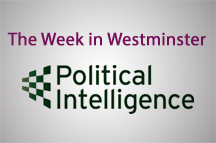 This week in Westminster was dominated by reports of a bomb possibly being responsible for the Sinai plane crash and at home by the introduction of measures to curb terrorist activity online.
This week in Westminster was dominated by reports of a bomb possibly being responsible for the Sinai plane crash and at home by the introduction of measures to curb terrorist activity online.
The draft Investigatory Powers Bill, a piece of legislation that in its previous form was rejected by the Conservatives’ coalition partners in the last Government and labelled the ‘Snooper’s Charter’, was heavily trailed at the beginning of the week with reports that the Bill’s provisions had been watered down. The draft Bill was published on Wednesday after PMQs but it was the revelation from the Home Secretary that MI5 and GCHQ had been secretly bulk collecting the British public’s phone and email records for years that really stole the limelight. Perhaps surprisingly for the Home Secretary was the support afforded to the Bill by Labour Party. Shadow Home Secretary Andy Burnham MP said that the proposals were “neither a Snooper’s Charter nor a plan for mass surveillance”. The former Shadow Home Secretary David Davis MP will be the Parliamentarian to watch on this issue given his well-known opposition to any Bills that are perceived to diminish civil liberties. You can expect to see Davis hit the headlines as the Bill and the Home Office come under further scrutiny.
 The Bill was overshadowed immediately by reports that a bomb was the likely cause of a Russian aircraft having exploded just minutes after departing the Egyptian resort of Sharm el-Sheik. The Prime Minister held a Cobra meeting on Wednesday night and thousands of Britons are now stranded in Egypt after the Government advised against all but essential travel to Sharm el-Sheik, making the planned visit of Egypt President al Sisi somewhat awkward. The reports of a possible terrorist attack and ISIS’ continued presence in Iraq and Syria will only strengthen the Government’s resolve to ensure that the Investigatory Powers Bill is passed.
The Bill was overshadowed immediately by reports that a bomb was the likely cause of a Russian aircraft having exploded just minutes after departing the Egyptian resort of Sharm el-Sheik. The Prime Minister held a Cobra meeting on Wednesday night and thousands of Britons are now stranded in Egypt after the Government advised against all but essential travel to Sharm el-Sheik, making the planned visit of Egypt President al Sisi somewhat awkward. The reports of a possible terrorist attack and ISIS’ continued presence in Iraq and Syria will only strengthen the Government’s resolve to ensure that the Investigatory Powers Bill is passed.
Elsewhere, the protracted row between the Health Secretary Jeremy Hunt MP and junior doctors continued to rumble on. Hunt attempted to avert the threat of industrial action with an eleventh-hour offer of an11% pay rise to junior doctors as part of the new contract due to be introduced next summer. The British Medical Association rejected the offer outright and junior doctors look certain now to strike. You can expect to see the Labour Party apply further pressure to Hunt on this issue given the NHS is traditionally an area of strength for them.
 Tax credits were raised once again during PMQs. Labour leader Jeremy Corbyn focused his attacks at the dispatch box on the Prime Minister’s inability to explicitly guarantee that nobody will be worse off following the changes to tax credits from April 2016. Cameron responded, however, that Corbyn would have to wait until the Spending Review for the full answer. Much of Labour’s focus this week has been on the Oldham West and Royton, with the Leader of Oldham Council, Jim McMahon, chosen as their candidate for the upcoming by-election. McMahon beat the Unite backed Mohammed Azam and was seen by many as the most moderate figure in a fairly left wing field. The vote on 3rd December in the safe Labour seat will provide the first public test for Corbyn’s Labour Party.
Tax credits were raised once again during PMQs. Labour leader Jeremy Corbyn focused his attacks at the dispatch box on the Prime Minister’s inability to explicitly guarantee that nobody will be worse off following the changes to tax credits from April 2016. Cameron responded, however, that Corbyn would have to wait until the Spending Review for the full answer. Much of Labour’s focus this week has been on the Oldham West and Royton, with the Leader of Oldham Council, Jim McMahon, chosen as their candidate for the upcoming by-election. McMahon beat the Unite backed Mohammed Azam and was seen by many as the most moderate figure in a fairly left wing field. The vote on 3rd December in the safe Labour seat will provide the first public test for Corbyn’s Labour Party.














